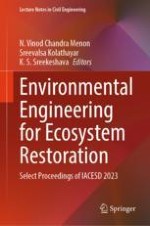2024 | OriginalPaper | Buchkapitel
An Experimental Study on Optimal Evaluation and Operational Conditions of Thermal Energy Systems in Green Building
verfasst von : N. Baskar, D. S. Vijayan, D. Parthiban, R. Sanjay Kumar, Arvind Sivasuriyan, Itishree Barik
Erschienen in: Environmental Engineering for Ecosystem Restoration
Verlag: Springer Nature Singapore
Aktivieren Sie unsere intelligente Suche, um passende Fachinhalte oder Patente zu finden.
Wählen Sie Textabschnitte aus um mit Künstlicher Intelligenz passenden Patente zu finden. powered by
Markieren Sie Textabschnitte, um KI-gestützt weitere passende Inhalte zu finden. powered by
